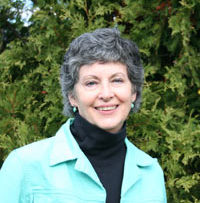I devote a lot of my energy to helping groups and organizations work collaboratively. This isn’t always easy (in fact, working collaboratively isn’t always easy for me), but it can and must be done. To succeed in addressing the complex challenges we face in our organizations, communities, nation, and world, we need to think, learn, and act together.
From the time I was a high school student, I have been concerned about the challenges we face in working together to create inclusive and effective organizations, communities, and societies that serve the well-being of all people. With those concerns in mind, I majored in history in college and became a high school social studies teacher. The school system in which I taught had a good reputation, and indeed many students got an excellent education. Even so, over time I began to notice certain patterns in the life of the school. There were issues that, no matter how many times they were discussed, never seem to be resolved. I wondered why well-intended, dedicated faculty, staff, and administrators could not make headway on these issues. When I began to learn about organizational systems theory, leadership theory, and group dynamics, new understanding opened up for me.
While human systems are challenging, there are concepts and skills that really can help us to create more humane and effective work teams, organizations, and communities. I continued to develop my knowledge and skills in these areas through my work as a faculty member at Antioch University New England and as a consultant specializing in leadership, team, and organization development. I am delighted when I am able to help students develop skills that open up possibilities for more productive and satisfying work relationships. I love hearing from students who have used concepts and techniques learned in our Teamwork & Diversity course to facilitate workplace or community meetings that produce effective collaboration, engaged participants, and worthwhile results.
Skills in collaborative leadership and facilitating change are essential as we address the daunting social and environmental issues that we face on our planet. Teaching in our MBA in Sustainability, I focus on the human side of organizations and the related knowledge and skills that our students need to succeed in their careers as sustainability practitioners. I teach Teamwork & Diversity, Developing Human Resources, and sometimes Leadership, Entrepreneurship & Change. Teaching in this program has deepened my understanding of the inter-relatedness of human and natural systems. Working with a community of students, faculty, and staff who are committed to sustainable, effective, humane organizations and communities is enlivening and fulfilling.
- EdD, University of Massachusetts, Amherst
- MEd, Counseling, University of Massachusetts
- BA, History, University of Massachusetts
Howes, N., Mellen, D. & Tomey, E. Partners in Performance: A Collaborative Approach to Nonprofit CEO Development and Appraisal. New Hampshire Corporate Fund, 1998.
Weinstein, G. & Mellen, D. Anti-Semitism. In M. Adams, L. Bell, & P. Griffin (Eds.), Teaching for Diversity and Social Justice: A Sourcebook. Routledge, 1997.
- New Hampshire Businesses for Social Responsibility
- Net Impact
- Organization Development Network
- Teamwork & Diversity
- Developing Human Resources
Past
- Leadership, Entrepreneurship & Leading Change
- Leadership for Change (for the Environmental Studies Department)
- Diversity in the Workplace
- Self Knowledge for Leadership
- Systems Theories & the Organization Environment
- Group Dynamics & Leadership I & II
- Organization Development
- Practicum Professional Seminar

